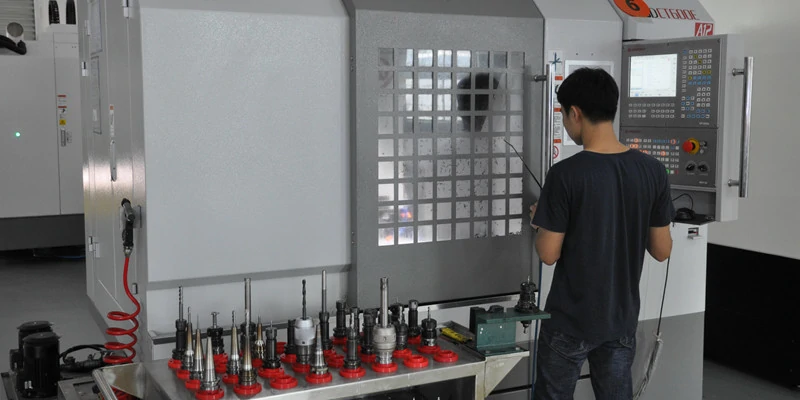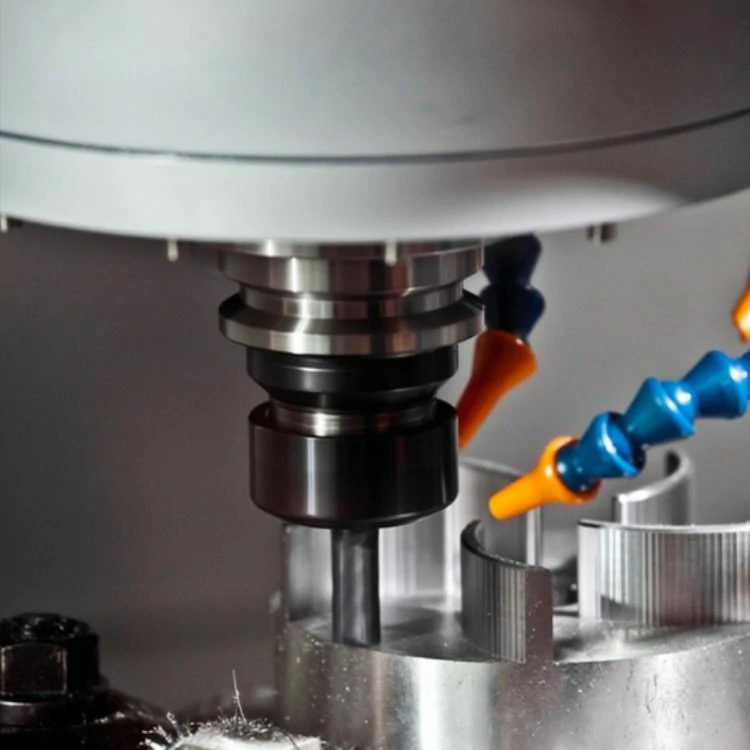Special CNC machine tools for aluminum silicon carbide processing are advanced machining devices designed specifically for the fabrication of components using aluminum silicon carbide (AlSiC) composite materials. AlSiC is a unique composite material that combines the lightweight properties of aluminum with the excellent thermal conductivity and stability of silicon carbide. This makes it an ideal choice for various applications in industries such as aerospace, automotive, electronics, and telecommunications.
The development of special CNC machine tools for AlSiC processing has revolutionized the manufacturing process and opened up new possibilities for design and performance optimization. These machines are equipped with specialized features and cutting-edge technologies to ensure precise and efficient machining of AlSiC components.
One of the key features of these CNC machine tools is their ability to handle the unique properties of the AlSiC composite material. Aluminum and silicon carbide have different physical properties, such as thermal expansion coefficient and hardness, which can pose challenges during machining. The special machine tools address these challenges by incorporating advanced cooling systems, adaptive control algorithms, and specialized cutting tools.
Cooling systems play a crucial role in controlling the temperature during AlSiC machining. Excessive heat can cause thermal stress and deformation in the workpiece, leading to dimensional inaccuracies and reduced overall quality. Special CNC machine tools utilize advanced cooling techniques, such as cryogenic cooling or high-pressure coolant delivery, to regulate the temperature and ensure optimal machining conditions.
Adaptive control algorithms are another important feature of these machines. These algorithms continuously monitor and adjust the cutting parameters, such as cutting speed, feed rate, and depth of cut, based on real-time feedback from sensors. This adaptive control allows for dynamic optimization of the machining process, maximizing productivity while maintaining the desired quality and accuracy of the finished components.
In addition, specialized cutting tools are used in AlSiC processing to overcome the challenges posed by the different hardness levels of aluminum and silicon carbide. These tools are designed with specific geometries and cutting edge profiles to ensure efficient material removal, minimize tool wear, and achieve high surface finish. The machine tools are equipped with automatic tool changers, enabling quick and seamless tool replacement to suit different machining operations.
The special CNC machine tools for AlSiC processing also feature advanced software systems that facilitate efficient programming and simulation of machining operations. These software systems allow for the creation of tool paths, optimization of cutting strategies, and virtual simulation of the machining process. This virtual simulation helps identify potential issues and optimize the machining parameters before the actual fabrication process, reducing the risk of errors and ensuring higher productivity.
Overall, the development of special CNC machine tools for aluminum silicon carbide processing has revolutionized the manufacturing industry. These machines enable precise and efficient machining of AlSiC components, making it possible to harness the unique properties of this composite material for various applications. With continuous advancements in technology, these machines are expected to further enhance the capabilities and possibilities of AlSiC processing, contributing to the advancement of industries worldwide.




